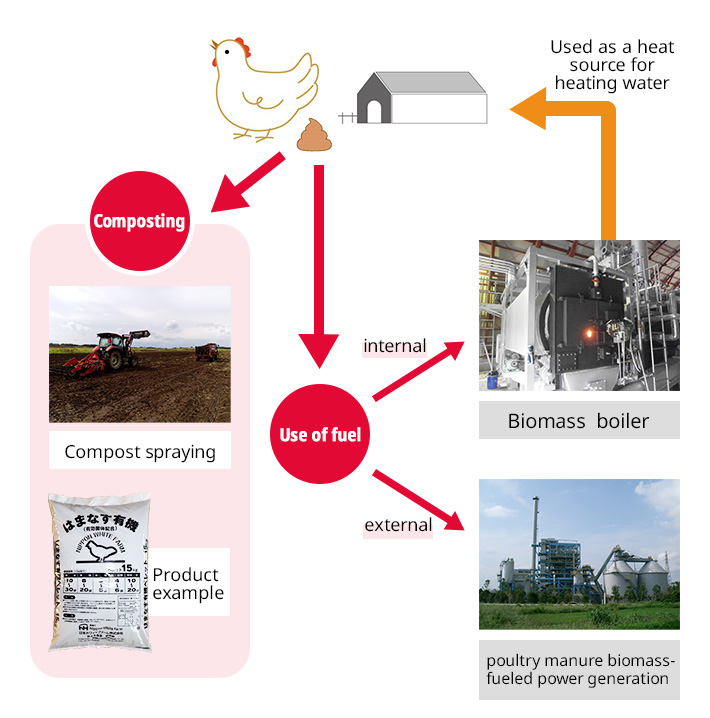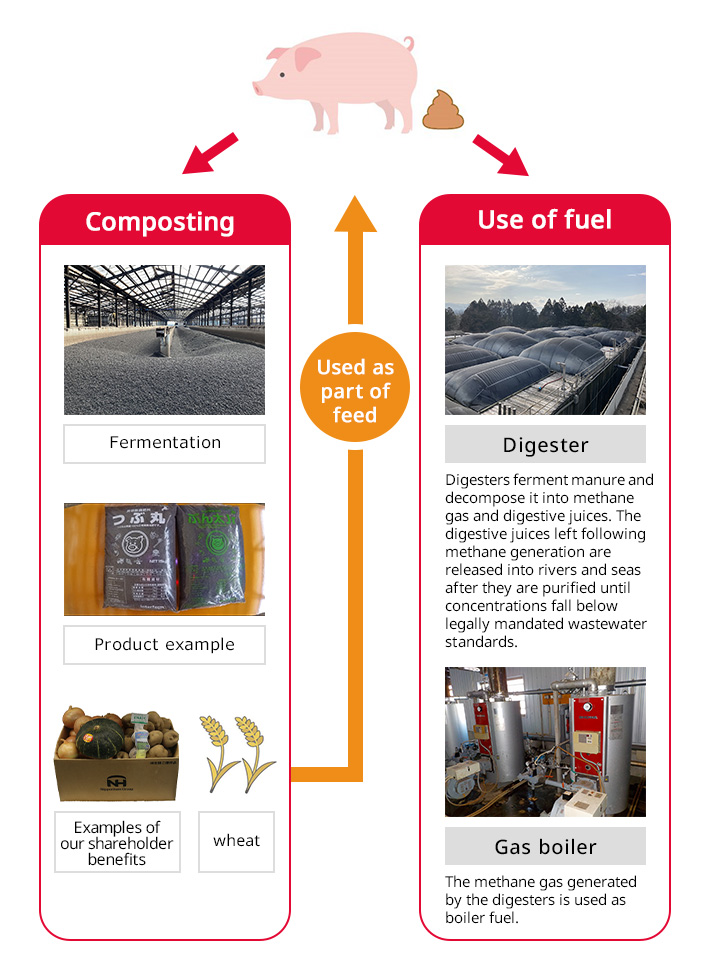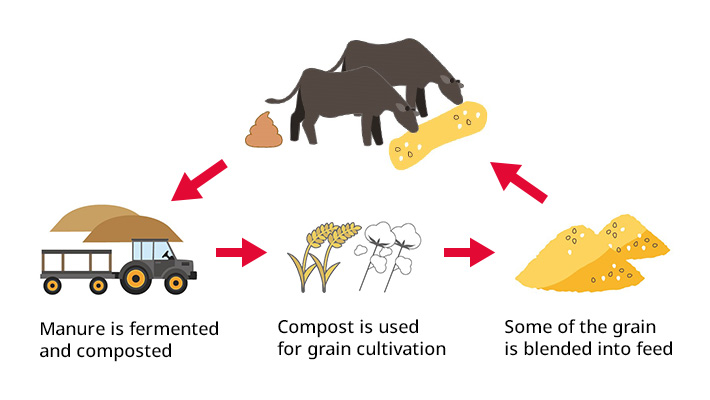The NH Foods Group has consistently been engaged in the production, rearing, and sale of pigs and chickens in Japan and cattle in Australia.
The manure produced when raising livestock accounts for the largest amount of waste generated within the Group, and despite having a high environmental impact, it can be effectively used as a resource. The Group is therefore engaged in sustainable business activities, such as composting manure and creating biofuels from that to reduce CO2 emissions.
We have engaged in these resource recycling activities for 40 years already, and will continue to do so into the future.
Chicken-related Initiatives
We primarily employ the following two methods at all of our business sites to effectively utilize the bird droppings (poultry manure) produced when raising chickens.
Composting
Most of the poultry manure is fermented to produce compost formulated for different applications.
The resulting compost is commercialized and sold for use in the fields of neighboring farmers, among others.
For example, the Tohoku Business Division of Nippon White Farm Co., Ltd., located in Aomori Prefecture, one of Japan's leading producers of burdock root and Chinese yam, sells the compost it produces for use by farmers in the Kamikita and Shimokita regions.
Use of fuel
Some of the poultry manure that is not composted is burned in biomass-fueled boilers to supplement fossil fuels. These boilers serve as a heat source for the hot water used to heat and clean chicken houses.
In Miyazaki Prefecture, we established Japan's first poultry manure biomass-fueled power generation business in 2003 through a joint investment with poultry farmers, agricultural cooperatives, and other businesses. As part of this effort, we have been working to convert poultry manure into fuel for more than 20 years now.
This project was also selected as a recipient for the "2023 Regional Coexistence-type Renewable Energy Project Awards " administered by the Ministry of Economy, Trade and Industry’s Agency for Natural Resources and Energy.
Image of effective use of poultry manure

Pig-related Initiatives
We primarily employ the following two methods at all of our business sites to effectively utilize the pig droppings (Pig manure) produced when raising pigs.
Composting
Pig manure is fermented to produce compost formulated for different applications.
As a group company, Nippon Clean Farm Ltd., which raises pigs, is also engaged in the vegetable cultivation business. It provides the vegetables it grows using its compost from pig manure as a benefit to shareholders of NH Foods Ltd.
Since fiscal 2021, it has also grown wheat, which it uses as an ingredient in the pig feed used at its farms.
Use of fuel
Some pig manure is subjected to anaerobic fermentation, and the methane gas generated during this process is used as boiler fuel.
This approach generates fewer CO2 emissions than kerosene-fueled boilers, thereby contributing to lower GHG emissions originating from livestock.
Image of effective use of pork manure

Beef-related Initiatives
We primarily employ the following the method at all of our business sites to effectively utilize the beef droppings (beef manure) produced when raising beef.
Composting
All of the feces generated at the Whyalla Feedlot, where beef are raised, is composted through a fermentation process.
Some of the compost is used to grow the barley and cottonseed used as cattle feed. Specifically, these are used by the feedlot’s feed plants as an ingredient in the feed formulations optimized to match the health condition and weight gain of cattle.
Image of effective use of beef manure

